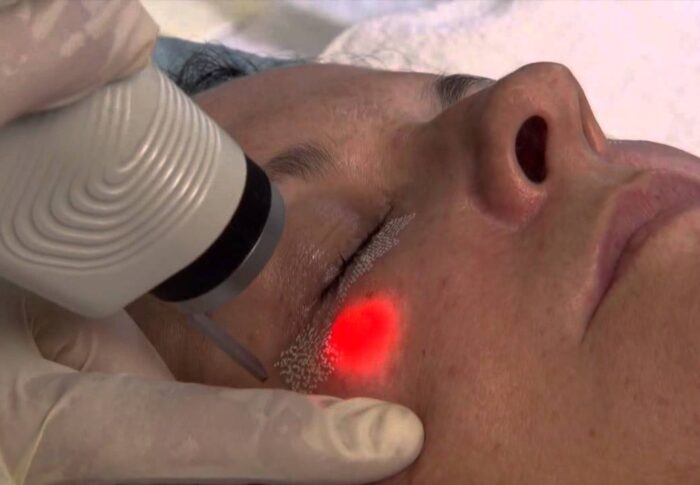
What does sleep mean in psychology?
Sleep is a natural state in which your body and mind slow down, your metabolism decreases, and you are relatively insensitive to stimuli. It also has distinct stages and brain wave patterns. Listed below are some of the most important things you should know about sleep. Learn more about REM sleep and its impact on memory. Then, make your next nap. Here are a few benefits of REM sleep.
Stages of sleep
The stages of sleep are defined according to the brain waves that occur during each phase. Alpha brain waves decrease at the start of stage one. During this stage, brain activity is mostly characterized by delta waves and muscle relaxation. Although the mind and body do not move during this stage, they are still capable of moving in the event of an emergency. This stage is also when many people experience nightmares, childhood bed-wetting, sleepwalking, and other sleep disorders.
The five stages of sleep can be described according to the type of brain activity during each stage. There are two types of sleep: REM (rapid eye movement) and non-REM (non-rapid eye movement). The brain activity during the stages of sleep shows distinct patterns, known as the “sleep architecture.” Each stage is visually represented in a hypnogram, which is a visual representation of sleep. In 2007, the American Academy of Sleep Medicine (AASM) revised the stages of sleep classification and cycle.
Sleep is a natural process that plays an important role in maintaining our health and maintaining our daily routine. However, there are times when this process is disturbed. We may be interrupted during a certain stage of sleep, which causes us to repeat the entire process before finishing. Interrupted sleep can be a result of a variety of factors. It may occur occasionally or chronically. Some people are prone to disrupted sleep. These interruptions may result in lighter or fewer dreams during the day.
In adults, we spend a little more than half of our sleep in REM, while babies spend almost half of their sleep in REM. REM sleep is the time when dreams are made. In infants, this phase lasts up to 50% of their sleep time. In elderly people, however, the percentage of time spent in this stage drops to less than half. This lack of time in the REM stage has significant consequences.
Functions of sleep
For thousands of years, the function of sleep was a mystery to scientists, but modern research is providing clues about its physiological and psychological benefits. Sleep re-energizes body cells and clears out brain waste. It also regulates the appetite and libido. The body uses less energy during sleep, allowing it to operate at a higher level during the day. The different types of sleep may have different physiological and psychological benefits.
Sleep is a natural process. It is divided into four distinct phases. During stage 1, the brain is deep asleep while in stage 2, it’s awake. Then, it transitions to REM sleep, which is also known as dreaming sleep. After REM sleep, the body returns to the earlier stages of the cycle. This cycle is repeated four or five times in a human. This is consistent with the biological necessity of sleep.
Energy conservation theory holds that sleep’s primary function is to conserve energy. Sleep reduces body temperature and caloric demand, allowing the body to conserve energy resources. Many scientists consider this a key role in the inactivity theory of sleep. It’s not surprising then that sleep has such a profound effect on physical and mental health. There is a lot to learn from this book. If you’re interested in studying this topic, it’s well worth your time.
Research has also shown that sleep helps in the consolidation of memory. Research suggests that REM sleep facilitates the consolidation of memories, which are of emotional or motivational value. Furthermore, studies show that REM sleep is essential to the development of adapted emotional responses during the waking state. Consequently, REM sleep plays a crucial role in the prevention of addictions. Theoretically, this hypothesis could explain several disparate observations.
Stages of homeostasis
There are different stages of sleep, and the duration and intensity of sleep are regulated by the body’s homeostatic mechanisms. One of these processes is the circadian clock, which regulates sleep timing and intensity. Slow-wave activity in nonREM sleep is a symptom of homeostasis. It correlates positively with the threshold for arousal. The concept of homeostasis was introduced by Walter Cannon, a Harvard University professor, and later applied it to sleep regulation.
While the stages of homeostasis are functional, there is evidence that the sleep of narcoleptic patients may exhibit differences between healthy controls and patients. When these differences are present, sleep homeostasis is characterized by a functional state of the sleep system. A decline in Process S during the baseline conditions may be related to an increase in short wake episodes during the second and third sleep cycles. The elaborated model may be able to more accurately represent the process S. However, in the third sleep cycle, the decline of Process S is less steep.
The Phillips-Robinson model suggests that the body’s two processes interact, one during sleep and the other during wakefulness. Its two-process model includes a core flip-flop system and mutually inhibitory neurons that influence the level of homeostatic sleep pressure during wakefulness. The model also incorporates a circadian component, whereby the pressure at which sleep and wakefulness are maintained varies throughout the day.
Homeostatic regulation during early morning sleep is particularly vulnerable, as it is a crucial time for the body to recover from the day’s activities. Without adequate sleep, a person can become unreliable and less alert, which can compromise cognitive performance. And with the reduced time of homeostatic rise during wakefulness, sleep duration decreases monotonically. This may result in an ‘n’-shaped MSF.
Impact of REM sleep on memory
A growing body of research indicates that rapid eye-movement (REM) sleep can modulate and strengthen memory. It also mediates the integration of previously consolidated neocortical memory traces. These studies suggest that REM sleep may affect the consolidation and recollection of emotion memories. However, more research is needed to determine the role of REM sleep in the formation and consolidation of memories.
Researchers have used REM sleep to study emotional processing and long-term spontaneous memory recall. They’ve also used involuntary memories of aversive materials as analogues of intrusive traumatic memories. They’ve also used REM sleep to identify vulnerability markers, such as early re-experiencing of traumatic events. In some cases, this process can predict the development of PTSD or other psychological disorders later in life.
Although not all participants reached REM sleep, a significant difference was found between the two groups. The group that REM sleep awakened had longer periods of REM sleep than the group that didn’t REM sleep. This difference was not statistically significant, but demonstrates the importance of REM sleep. And while it is still unknown whether REM sleep is essential to cognitive processes, it can be important to consider it.
However, some researchers do not believe that REM sleep is essential for memory consolidation. They’ve used rats that lacked REM sleep to complete a maze and found that they were not as good at navigating the maze. Other researchers say that REM sleep may not be necessary for memory consolidation but it’s not important for long-term memory. There’s also some evidence that REM sleep may affect the perception of sleep.
Effect of sex hormones on sleep
Studies on the effects of sex hormones on sleep have found that a significant association exists between sex hormone levels and poor sleep. These associations were confirmed in population and patient-based studies. Moreover, they showed that sex hormone levels are correlated with the amount of time spent in REM sleep. The findings point to a possible role for these hormones in the regulation of sleep.
However, despite the potential effects of sex hormones on sleep, more research is required to find out the exact mechanism. A number of factors contribute to disturbed sleep, including the amount of sex hormones in the body. Sex hormone levels are strongly associated with sleep quality, and women have higher risk of insomnia than men. Sex hormones in women are also linked with depression, with women experiencing more severe depression around puberty and menopause than men. It is unknown whether sex hormones may play a role in sleep disorders, but it is believed that the sex hormones are related to sleeping quality. A systematic review of studies on the relationship between sex hormones and sleep was conducted.
Studies examining the relationship between sleeping hours and fertility have also been conducted. Researchers such as Auger NJ and Healy-Profitos have shown that men and women who are sleep-deprived are more likely to be fertile, compared to those with regular sleep hours. This is an important finding and one that should be further explored in future studies. The study results will also help us determine if sleep is a good time for conception.






